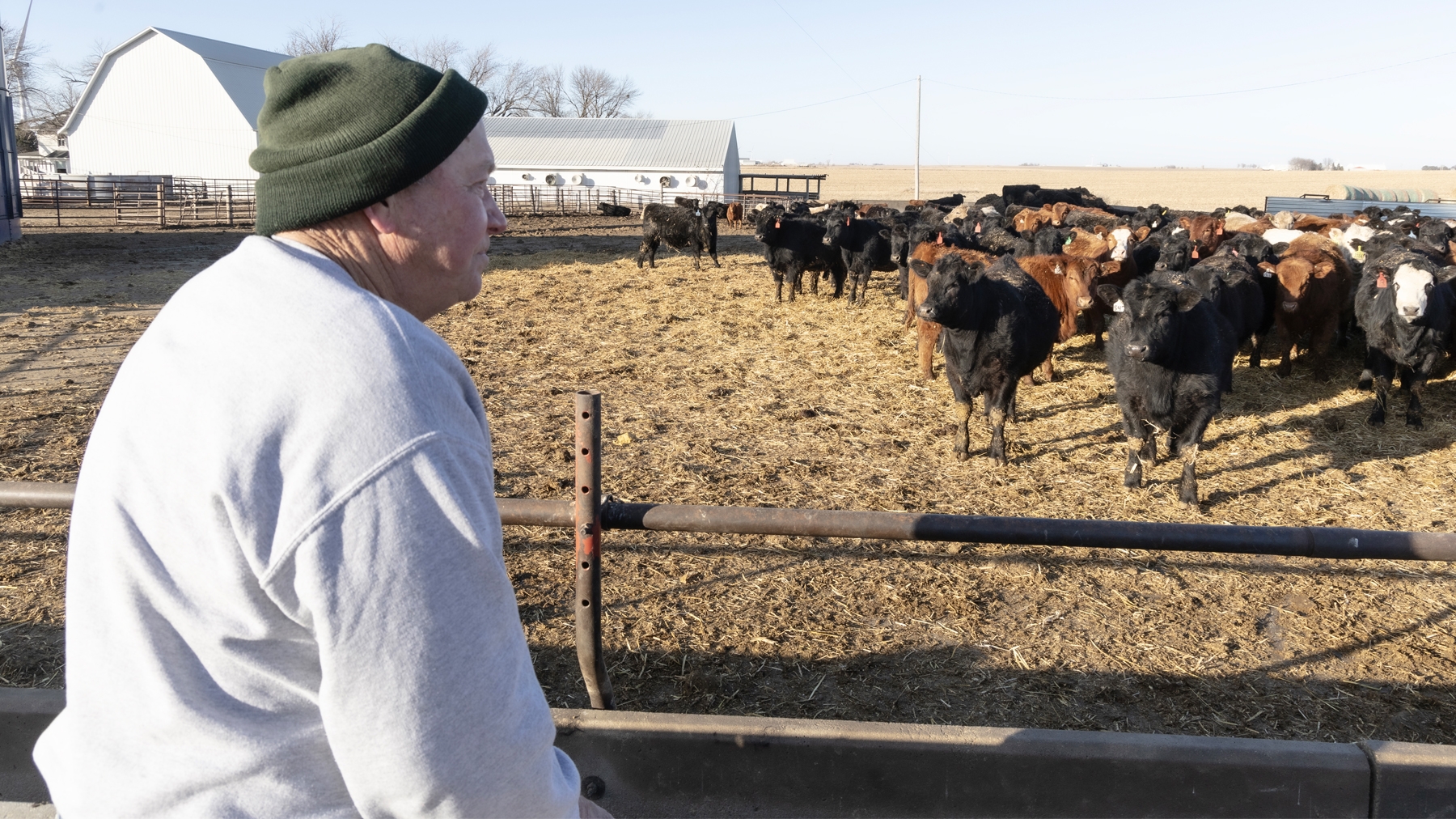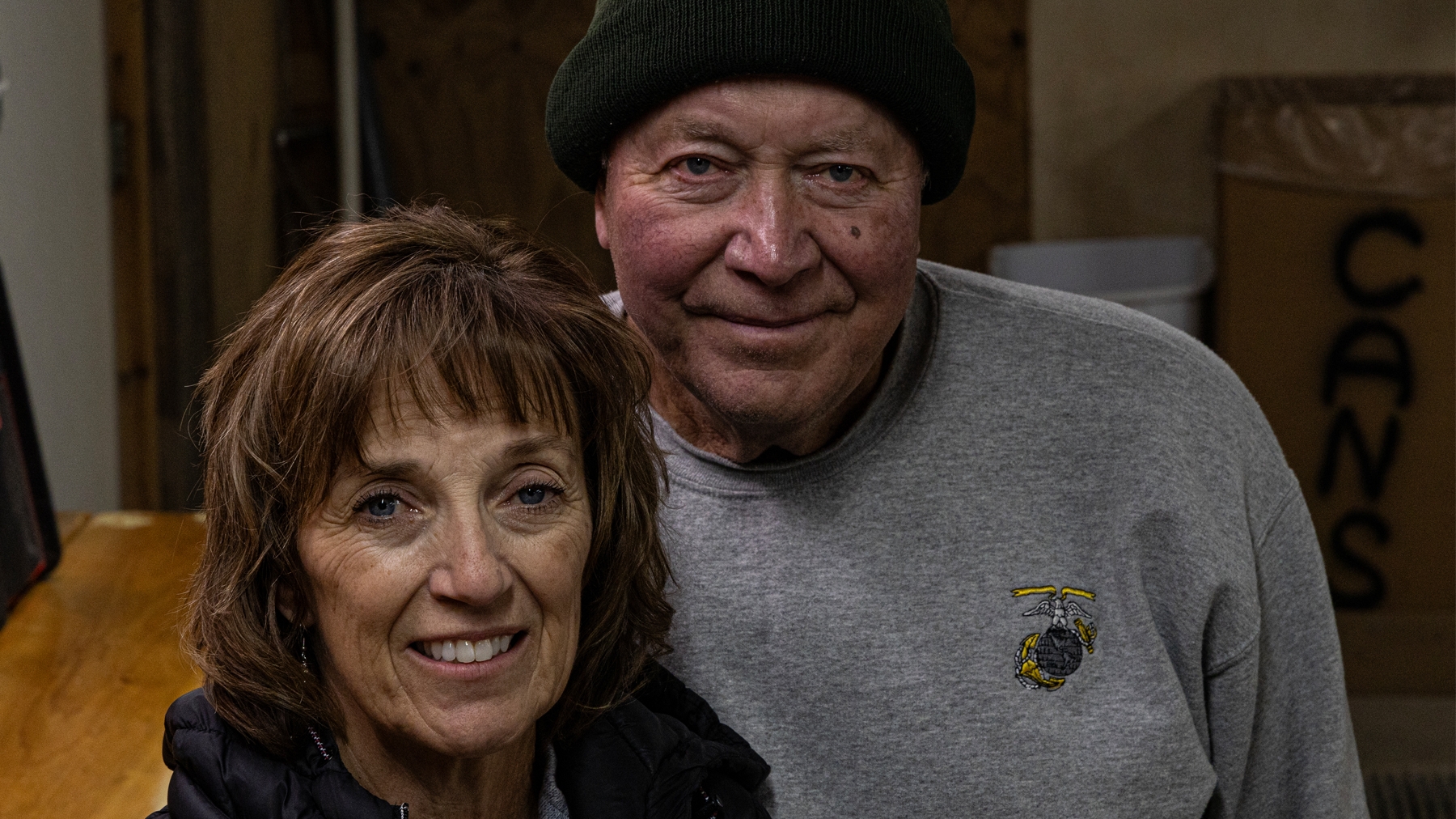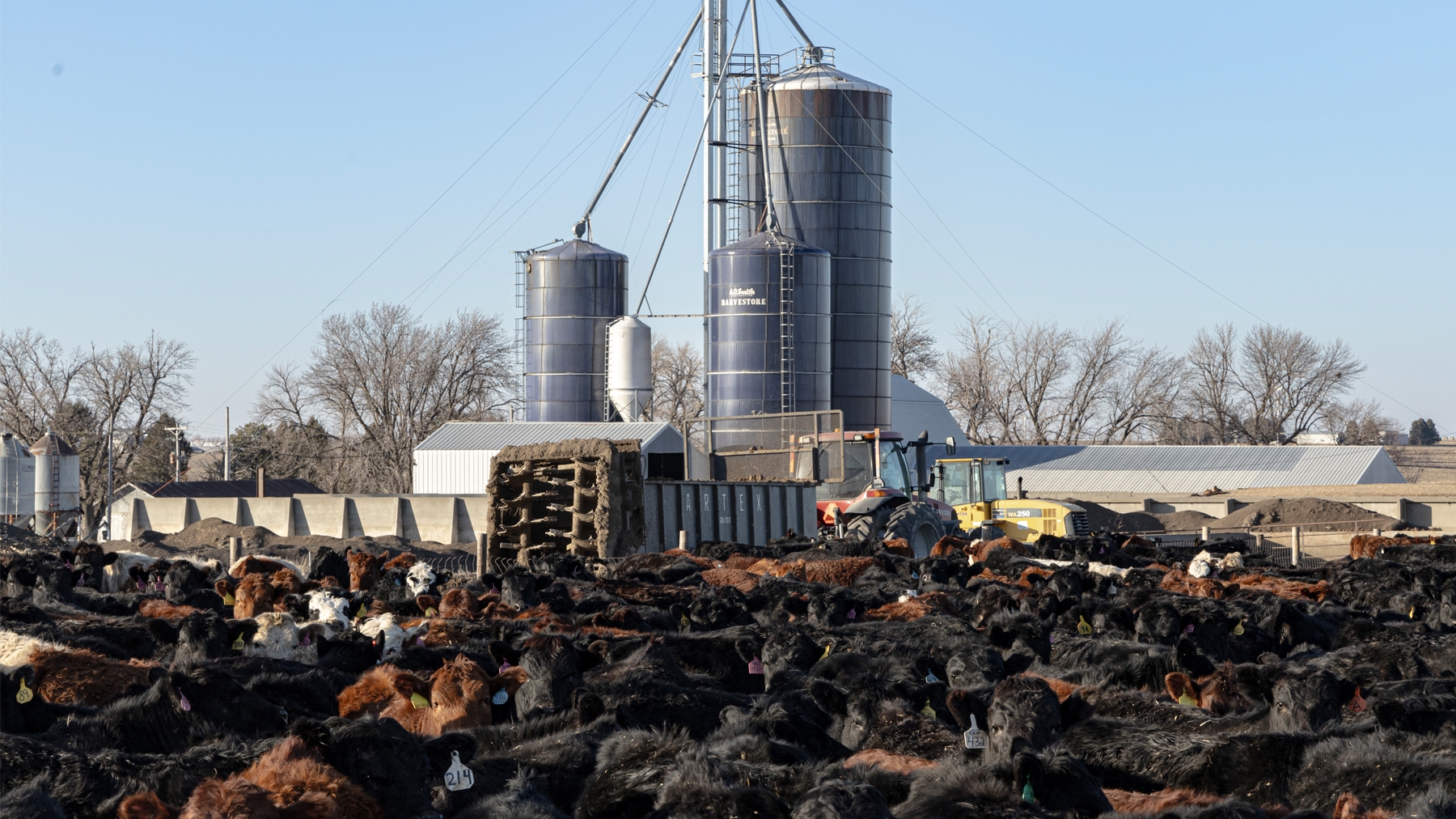“In my class, there were 425 second lieutenants who graduated. Of those, 44 were killed and 70% were wounded. If you got shot the first time, there was usually a 50% chance of getting shot a second time. It was like they found your range. I just had the uncanny ability where they would get the guy in front of me or behind me, but not me.” — Roger Buehler
Almost 60 years have passed since Roger Buehler served as a Marine artillery officer in Vietnam from 1967 to 1968. Still, you can find him every Memorial Day, organizing small flags to be placed on veterans’ tombstones at the Odebolt cemetery.
His passion for service to this country is rivaled only by the dedication he showed in building a thriving cattle farm near Odebolt with his late brother, Duane; wife, Ellen; and children, Bradley Buehler, Abby McQuillen and Barry Buehler.
“The old statement that ‘if a cattle operation is still feeding cattle on their own after many years, they must be doing it right’ fits here,” says Don Friedrichsen, who farms near Holstein and is a 2008 Iowa Master Farmer.
Farming, however, is just one of the Buehler family’s interests. Besides the American Legion, Roger has led organizations ranging from conservation to school boards to cattle industry committees. Ellen has taught Sunday school and led 4-H groups.
“4-H is where we really got to know Roger and Ellen,” says Carmen Witzke, a local commodity broker. “They both have a passion for 4-H, the youth and love for the Sac County Fair. To this day, they still encourage the youth and their parents.”
Stewart Melvin first met Roger as a fellow Iowa State University graduate student. “I could go on and on listing the accomplishments and impact both Roger and Ellen have had in their community and state,” says Melvin, a retired ISU agricultural engineer and 2004 Master Farmer Exceptional Service to Agriculture Award winner.
For all their contributions to agriculture and community, Roger and Ellen Buehler are 2025 Iowa Master Farmers.
‘Bones Buehler’
Roger grew up on a Century Farm that his great-grandfather bought in 1911. Throughout its history, the farm has revolved around cattle feeding.
“My family cattle stories go back to Dec. 7, 1941,” Roger says. “My dad needed to sell cattle. On Dec. 5, they were worth something like 20 cents [per pound]. On Dec. 8, they were worth twice as much. That was my dad’s first big windfall, over a war [following the Pearl Harbor attack].”
Roger studied animal science and graduated from ISU in May 1966. “I got my diploma in one hand and draft notice in the other,” he says.
He opted to join the Marine Corps. “It’s like, do you go out for the football team with the idea of sitting on the bench?” he says. “I decided I was going to be knee-deep in it or not do it at all.”
Roger’s tour of duty in Vietnam lasted 12 months and 29 days.
Conditions were brutal. “I ended up losing 30 to 40 pounds,” he says. “They started calling me ‘Bones Buehler.’ ”
Still, he survived. “What I observed is that if a guy knew he was going to get it, he got it,” he says. “I never, ever assumed I was going to get nailed.”
After he left the Marines as a captain in 1970, he went on to earn a master’s degree in animal science at ISU. After graduation, he interviewed with Bank of America.
“I thought my military background and my animal science degree had something to offer them,” he says. “But they wanted a political science major instead.”
Roger also interviewed with a Colorado feedlot but was told he was overqualified.
Tech adoption
So, he came home, formed a farming corporation with his brother Duane and started farming in 1974. They quickly adopted technology — such as a feed wagon scale — that ultimately helped the feedlot grow 10% every 10 years.
 LIFETIME WITH CATTLE: Although son Barry now manages the feedlot, Roger still feeds cattle four hours each day.
LIFETIME WITH CATTLE: Although son Barry now manages the feedlot, Roger still feeds cattle four hours each day.“As soon as we got the scale, feed records were worth keeping because we had something to base them on,” Roger says. They worked with Earl Mobley, an ISU Extension livestock specialist, to develop a feedlot closeout program that examined factors such as animal and financial performance.
“This morphed into a feedlot-monitoring program when it wasn’t a popular thing to do,” says Maynard Hogberg, a retired ISU animal scientist and winner of a 2015 Iowa Master Farmer Exceptional Service to Agriculture Award.
The duo also devised optimum times to buy and sell cattle. Even today, the Buehlers aim to buy cattle from Mother’s Day to Memorial Day in May and also from Oct. 15 to Dec. 15.
Part of this strategy is nixing implants for heifers. “Our records show an implant reduces the grade by 25% and adds two to three weeks to feeding time,” Roger says. “If you implant a heifer calf bought in late October, she’ll be marketed in late June. That’s historically not a good time to market cattle compared to around Mother’s Day.”
Asking questions
“Roger has the knack of looking into the future and asking questions that no one has even thought of,” Friedrichsen says.
While an ISU graduate student, Roger took a seemingly sleepy environmental affairs class.
“It opened up a whole new realm of stuff that we needed to be looking at,” he says. “When I started farming and joined the [Iowa] Cattlemen’s Association, I chose the environmental committee. At the state convention, there were like three people who showed up at my first [committee] meeting. Ten years later, you couldn’t find a chair to sit because everybody was there.”
Melvin has worked with the Buehlers over the years to address potential feedlot runoff issues. They have used measures including:
- clean water diversion
- settling basins for solids removal and storage
- grass infiltration strips to minimize downstream runoff
“He does an excellent job of maintaining the lot surface to minimize the manure solids buildup on the lot surface,” Melvin says. “I understand that his feedlot has been inspected by both Iowa [Department of Natural Resources] staff along with Region 7 [Environmental Protection Agency] staff and has passed these stringent inspections.”
Canadian canoers
Roger’s military skills, such as map reading, came in handy when he served as a guide for a church canoe outing to the Canadian Boundary Waters in the early 1980s.
One canoer in particular piqued his attention after he watched her pack what he thought were unneeded clothes for the trip.
“I told her, ‘You realize that whatever you pack, nobody is going to carry it for you. I have on what I am going to wear for next six days!’ ”
Years later, that canoer laughs. “What I really was doing was taking a pair of underwear for every day because I wanted to be clean!” Ellen says.
They became friends after the canoe trip. “It really wasn’t a courtship,” Roger recalls, “but she had such a spirit about her.”
Gradually, friendship morphed into marriage in 1985.
 CANOE COUPLE: Ellen and Roger Buehler met on a canoe trip to Canada’s Boundary Waters.
CANOE COUPLE: Ellen and Roger Buehler met on a canoe trip to Canada’s Boundary Waters.“I swore I would never marry a farmer,” Ellen recalls. “I grew up on a farm, but we were on a blacktop road, and my dad was more of a hobby farmer. So, when I was talking about marriage to my mom, she said, ‘Ellen, this is a real farmer. He lives on a gravel road.’ ”
The transition went well, and the couple had three children from 1986 to 1989. She immersed herself into the community, teaching Sunday school, being a 4-H leader for seven years and serving on the ISU Extension board for eight years.
Touching transition
Although the couple’s son Barry is now managing the farm, Roger still spends four hours each day feeding cattle.
“Roger will always feed cattle,” Ellen says. “Retirement isn’t a word in his vocabulary.”
However, they now have more time for travel, such as Roger’s Marine reunions.
“These guys had not seen each other since Vietnam,” Ellen says. “It was beyond healing. All the wives would say it was the best thing for them to talk to each other and tell stories about what they remembered.”
Becoming a Master Farmer is akin to when Roger graduated from Officer Candidate School with fellow high-achieving Marines, he says.
“When you look over a list of the Master Farmers from past years, they’re a lot like my Marine Corps people,” he adds.
This phase of life also gives Roger and Ellen more time to spend with their five grandchildren and see their farm continue on to the next generation.
“All our children helped out on the farm growing up,” Roger recalls. “And the other day, little Maisie [Barry and his wife Sydney’s 11-month-old daughter] comes out while we were working cattle. She had her little stocking cap on, all bundled up in a blanket. I thought, ‘This is exactly like it was over 30 years ago.’ In my world, that was touching, you know?”
Tornado!
In April 2011, Roger and Ellen Buehler noticed their two dogs entered their house earlier than usual.
“They knew something was going to happen,” Ellen says.
Well, yes.
A tornado ripped through their farmyard, tearing out fences and taking doors off a machine shed, a grain leg and an overhead bin in which the Buehlers stored corn for cattle feeding.
Cattle froze following the tornado. “Those animals were in total shock,” Ellen says.
The couple later euthanized some of them.
Four years later, the family was stunned by the sudden death from a brain aneurysm of Duane, Roger’s brother and farming partner. After splitting assets with Duane’s family, Roger and his son Barry assumed management of the feedlot and made upgrades.
 FULL FEEDLOT: An overhaul of the feedlot in recent years created fenceline feed bunks and a concrete floor.
FULL FEEDLOT: An overhaul of the feedlot in recent years created fenceline feed bunks and a concrete floor.The duo replaced the damaged grain bin with a clear plastic one through which they can better monitor corn.
They poured concrete to create fenceline feed bunks and a concrete feedlot floor. The concrete addition helps nix feedlot mud and provides cattle a dry place to lie down, Barry says.
“I always like to keep the cattle well bedded and keep bunks clean,” he says.
Masters at a glance
Name: Roger and Ellen Buehler
Family: Bradley Buehler, Abby McQuillen and Barry Buehler
Location: Odebolt, Iowa
Operation: Corn, soybeans and cattle feedlot with a one-time capacity of 999 animals. They annually market 1,350 to 1,400 cattle through the feedlot.
Leadership: American Legion Roose 313, president of Odebolt-Arthur school board, finance chairman of Odebolt United Methodist Church (Roger); ISU Extension board, chairwoman of education commission and MYF leader for Odebolt United Methodist Church (Ellen)
Nominator: Don Friedrichsen, 2008 Iowa Master Farmer